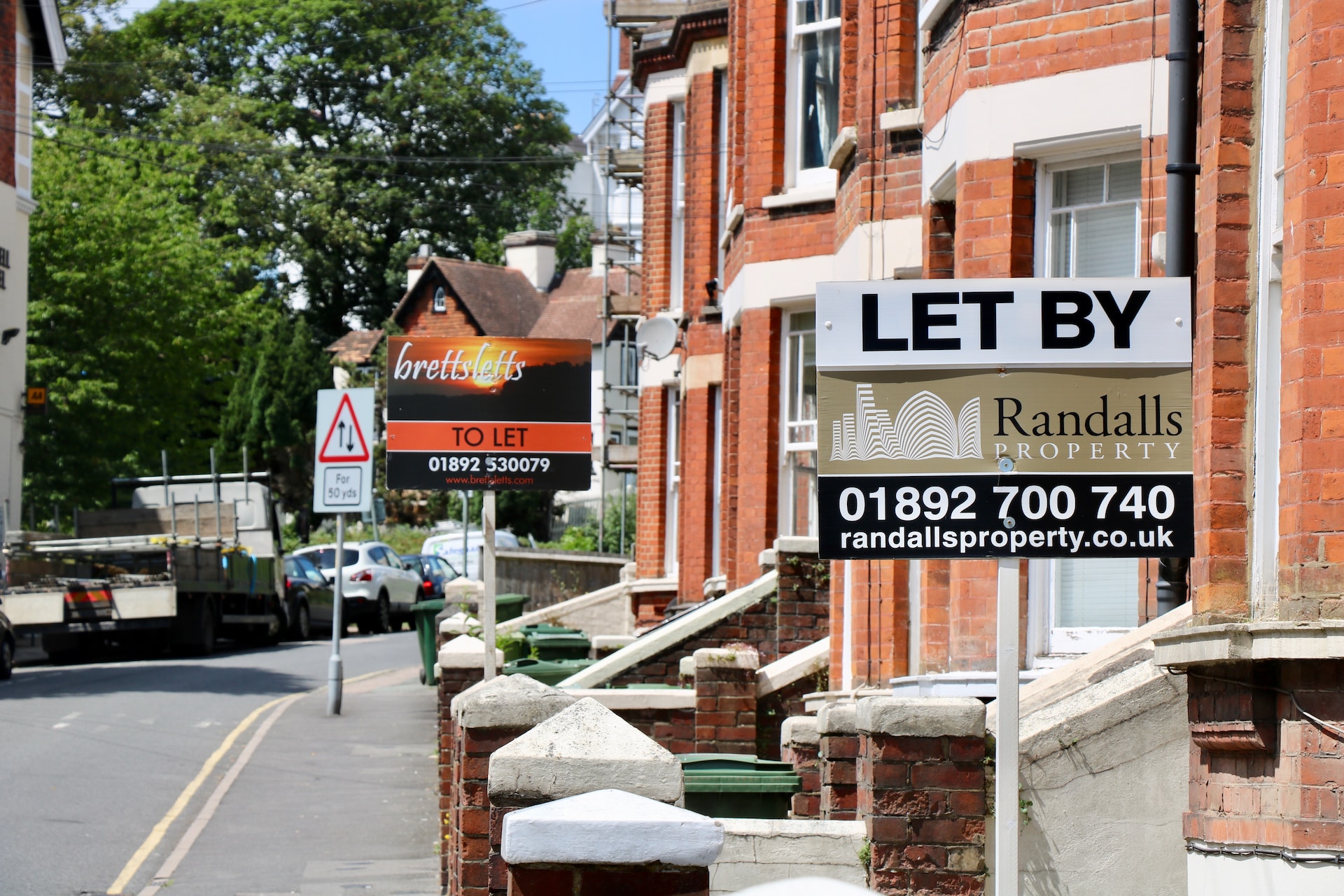Introduction
Are you renting a place and wrestling with the question, “Is my rent too high?” in the Netherlands? You’re part of a large group of expatriates and locals alike seeking clarity in a highly competitive and complex rental market. This post strips away the confusion and dives into the distinctions between social and free market rent. It arms you with key insights to determine your rental category and the actions you can take if you’re paying more than you should.
Whether you qualify for social housing with its rent caps and allowances, or you’re navigating the open waters of the free market, knowledge is your best ally. You’ll learn about the protections at your disposal and the benchmarks that signal when to push back on rent hikes. By unpacking the rekenhuur rules and rent increase regulations, we put control back in your hands. It’s time to confirm if your rent is justified or if you need to assert your tenant rights. Let’s begin.

Are You Renting a Social House or Free Market House?
When you sign a lease in the Netherlands, it’s vital to know whether you’re entering social housing or a free market rental. This knowledge affects your rights, rent price, and potential subsidies. Let’s break down the differences to help you pinpoint where you stand.
Social Housing Rent
Social housing serves as an affordable option for residents with limited income. If you are renting a room, caravan, or caravan pitch, you’re automatically in this category. The defining features of social housing in the Netherlands include affordability and regulation.
- Affordable Rent: The rekenhuur for eligibility is below €808.06 for 2023. Social housing is a budget-friendly choice for those who need it most.
- Rent Control: Government regulations keep your rent increases moderate and predictable, offering a sense of financial stability.
- Income Limits: To live in social housing, your income must not surpass a certain threshold, ensuring that these homes go to lower-income individuals and families.
In essence, social housing is about community support. It’s about providing a home that is more than just a place to stay. It’s a lifeline for many who might otherwise struggle to afford a roof over their heads in the competitive market. If you find your rent fits within these boundaries and you meet the income requirements, social housing could be your slice of peace in the bustling Netherlands. It’s a social safety net, complete with the potential for government assistance in the form of rent allowances, making living expenses more manageable.
Free Market Rent
Free market rent is for independent properties like houses and apartments. These properties come with their own facilities and have no rent caps. Here’s what you need to know:
- Landlords Set the Rent: They base it on property quality and location. Demand can drive up prices.
- No Eligibility for Rent Allowance: You won’t get a government subsidy for these rentals. You pay the full rent yourself.
- Regulated Rent Increases: The law limits how much your rent can go up each year. This protects you from unexpected high increases.
When you rent in the free market, you often live in better-located areas. These places offer more amenities and choices. You can find anything from a studio to a large house. If you have a kitchen and bathroom to yourself and no rent subsidy, you’re in the free market. You enjoy more housing options but also bear the higher costs.
In the free market, your power lies in knowing the rules and negotiating well. You need to understand the market to ensure you don’t overpay. Be smart and proactive. Get to know the rent trends and use that knowledge to discuss your rent with your landlord.
Figure Out Your Rent Category
Check your contract and rent amount. Does your rent go over the social housing threshold? Are you in a self-contained house or apartment? If so, you’re in the free market rent territory. Do you live in a room or caravan? You’re under social housing. It’s as clear-cut as that.
Both housing types have systems to ensure you don’t overpay. Social housing provides the Huurcommissie to challenge unfair rents, while free market renters can still question initial overpricing within six months of their lease. Both of which will be discussed in detail in the following sections.

Determining If Your Rent Is Too High
Deciding if your rent is too high can be tricky. But there are ways to check. Here’s how you can figure it out.
For Social Housing Tenants:
Check Your Rent Increase: It’s vital to start by examining any rent increase against government guidelines. Increases above the official cap are a red flag and may warrant further investigation.
Compare With Others: Conducting comparisons with other similar social housing units can provide context for your own rent. A significant discrepancy could indicate that your rent is set too high.
Review Your Income: Remember that social housing is intended to be affordable for those with lower incomes. If your rent is taking too much of your income, it may be time to look into whether you are being overcharged based on affordability measures.
Use Points System: The points system in place for social housing takes into account various attributes of your property. By understanding how this system works, you can see whether your rent is appropriately priced.
Apply for Rent Allowance: Rent allowance is a critical support for those eligible. Ensure that you apply if your rent is above the threshold but within the income eligibility limit, as this subsidy can significantly offset your housing costs.
For Free Market Renters:
First Six Months: Take advantage of the initial six-month window to evaluate your rent. This period is critical, as it’s your chance to contest a rent you believe is unfair. The Huurcommissie can provide a judgement on whether your rent is in line with market rates.
Know the Market: Acquiring knowledge about the rental market is crucial. High demand drives up rents, especially in sought-after areas. Conversely, if your rent is disproportionately high for a location with lower demand, you may have grounds to negotiate.
Monitor Rent Increase: Even in a free market, there are regulations that govern rent increases. Keep an eye on these and compare any proposed hikes with legal stipulations to ensure they are compliant.
Inspect Your Contract: Make sure to get what you pay for. Scrutinize your lease for promised amenities and services. If there’s a mismatch, discuss the discrepancies with your landlord.
Negotiate: Should the evidence suggest you’re overpaying, initiate a discussion with your landlord. Armed with facts and figures, you can make a strong case for a rent reduction.
Seek Help: If uncertainty prevails, don’t hesitate to seek guidance from housing advisors, or contact expatestates.nl. They are adept at navigating the intricacies of the rental market and can offer pertinent advice.
Common Ground for All:
Quality Check: Regularly evaluate the state of your dwelling. If you spot maintenance issues or a decline in living conditions, it’s reasonable to question if your rent should reflect these shortcomings.
Legal Help: Never shy away from seeking legal advice when rent disputes arise. The Huurcommissie serves as a mediator for social housing disagreements, while legal advisors can extend support to those in the free market.
Stay Informed: Rules and regulations around renting can change, so keeping informed is key. A shift in policy can sometimes work in your favor, making it important to stay updated with the latest rental market developments.
Act Fast: If you suspect your rent is too high, address it promptly. Delaying action can mean prolonged overpayment. Early intervention gives you a better chance of resolving the issue swiftly.
Document Everything: Documentation is your first line of defense in any rental dispute. Keep a meticulous record of all related correspondence, rent agreements, and official notices. These documents are invaluable during disagreements or official proceedings.
By taking these steps, you can protect yourself from overpaying and make sure you’re living in a place that’s priced right for what it offers. Stay alert, and don’t hesitate to reach out for advice or action if you suspect your rent is too high.

Protecting Your Rights When Rent is Too High
Protecting your rights as a tenant, whether in social housing or on the free market, is essential. Here’s how to ensure your rent remains fair and your living conditions are up to par:
For Social Housing Tenants:
If you’re in social housing and encounter problems, know that the Huurcommissie is your go-to resource. This independent body can step in if you suspect your rent increase doesn’t align with the legal guidelines. Moreover, they can help you understand your lease terms, ensuring your rights are not overlooked.
- Seek Mediation: When disagreements occur, the Huurcommissie can mediate between you and your landlord. This intervention can prevent disputes from escalating and provide a fair outcome.
- Challenge Unjust Increases: If your landlord raises the rent above the legal limit, you can challenge this action through the Huurcommissie within a specified timeframe.
- Uphold Your Living Standards: You have the right to decent living conditions. If your housing is not properly maintained, report it. The Huurcommissie can determine if your rent is excessive based on the property’s state.
For Free Market Renters:
As a free market renter, you have fewer protections, but you’re not without options. If your rent increases dramatically or if you’re unsatisfied with the state of your dwelling, you have the right to contest these issues.
- Review Increases Carefully: Keep an eye on rent increases and check they adhere to the legal guidelines. Landlords are not permitted to raise the rent indiscriminately.
- Assess Your Rental Value: Even without a rent cap, the initial price of your rental can be assessed for fairness by the Huurcommissie within the first six months of your contract.
- Negotiate Improvements: If you’ve agreed to improvements in exchange for a rent increase, ensure these are carried out satisfactorily. You can negotiate or challenge the quality and cost of these improvements if they do not meet the agreed standards.
For both:
- Stay Current: Regulations change, and staying informed is crucial. New laws can significantly impact your rights and obligations.
- Legal Assistance: If you can’t resolve issues with your landlord, seek legal advice. A legal advisor can guide you through your rights and the next steps to take.
- Act Decisively: If you feel your rights are infringed upon, take action immediately. Delay can mean losing out on potential remedies or compensation.
- Keep Detailed Records: Maintain thorough documentation of all interactions with your landlord and any agreements or notices received concerning your tenancy.
Protecting your rights starts with awareness. Whether you’re grappling with a rent increase, maintenance issues, or just ensuring your lease terms are fair, there are avenues to help you navigate the complexities of renting in the Netherlands. Empower yourself by staying informed, being proactive in your communications, and seeking assistance when needed. Your home is more than just a place to live—it’s the foundation of your well-being, so ensure it’s protected.

Final Thoughts
In conclusion, expats must vigilantly assess their rental agreements. Simple steps, such as utilizing the Huurprijscheck or consulting with the Huurcommissie, can make a significant difference in safeguarding your interests. At ExpatEstate.nl, we advocate for empowerment through information—so take charge of your housing situation. Review your lease, know your entitlements, and don’t hesitate to seek clarity on any uncertainties. Armed with the right tools and guidance, you can confidently navigate the rental market and enjoy the comfort of your Dutch home. For more insights and assistance, keep ExpatEstate.nl bookmarked as your ally in the real estate realm.






